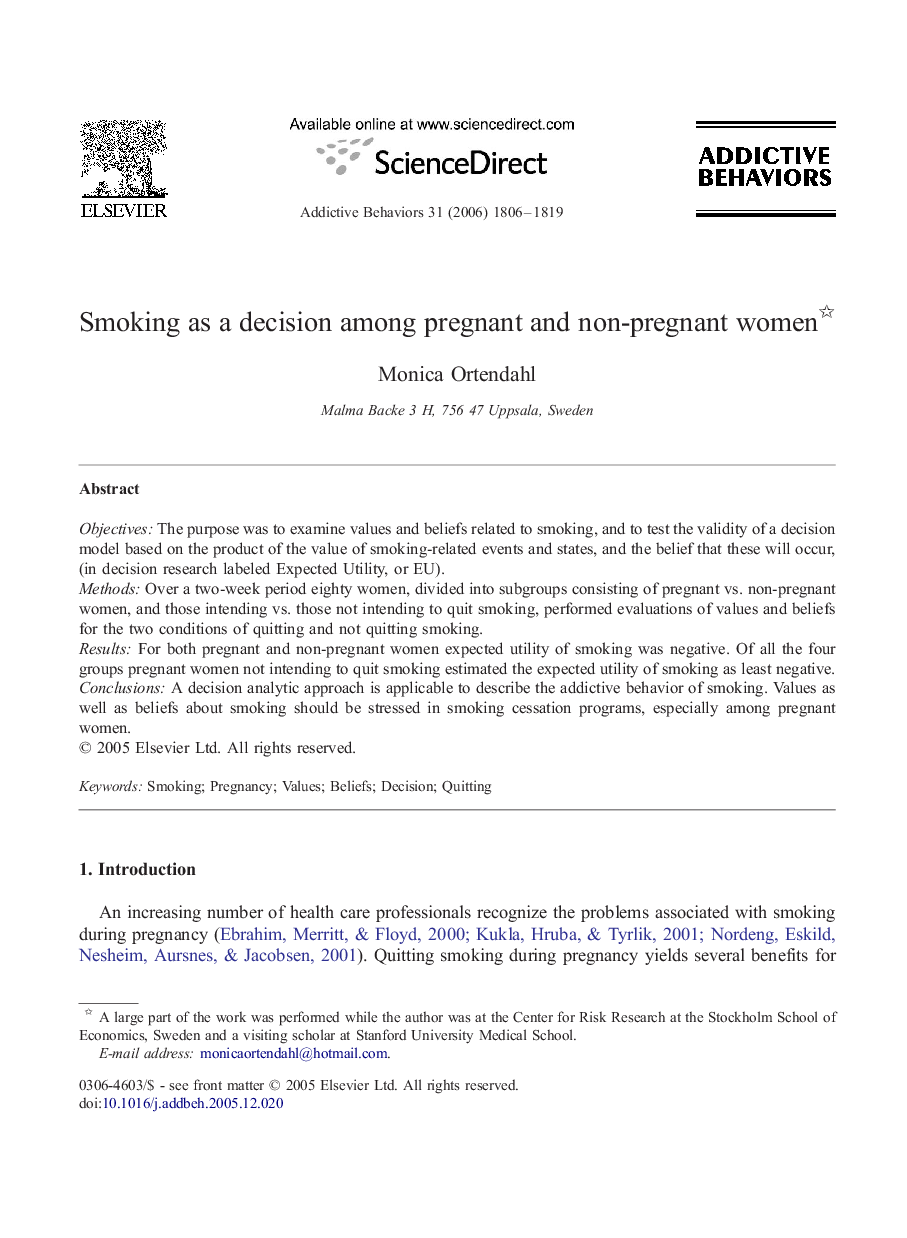| Article ID | Journal | Published Year | Pages | File Type |
|---|---|---|---|---|
| 900663 | Addictive Behaviors | 2006 | 14 Pages |
ObjectivesThe purpose was to examine values and beliefs related to smoking, and to test the validity of a decision model based on the product of the value of smoking-related events and states, and the belief that these will occur, (in decision research labeled Expected Utility, or EU).MethodsOver a two-week period eighty women, divided into subgroups consisting of pregnant vs. non-pregnant women, and those intending vs. those not intending to quit smoking, performed evaluations of values and beliefs for the two conditions of quitting and not quitting smoking.ResultsFor both pregnant and non-pregnant women expected utility of smoking was negative. Of all the four groups pregnant women not intending to quit smoking estimated the expected utility of smoking as least negative.ConclusionsA decision analytic approach is applicable to describe the addictive behavior of smoking. Values as well as beliefs about smoking should be stressed in smoking cessation programs, especially among pregnant women.
